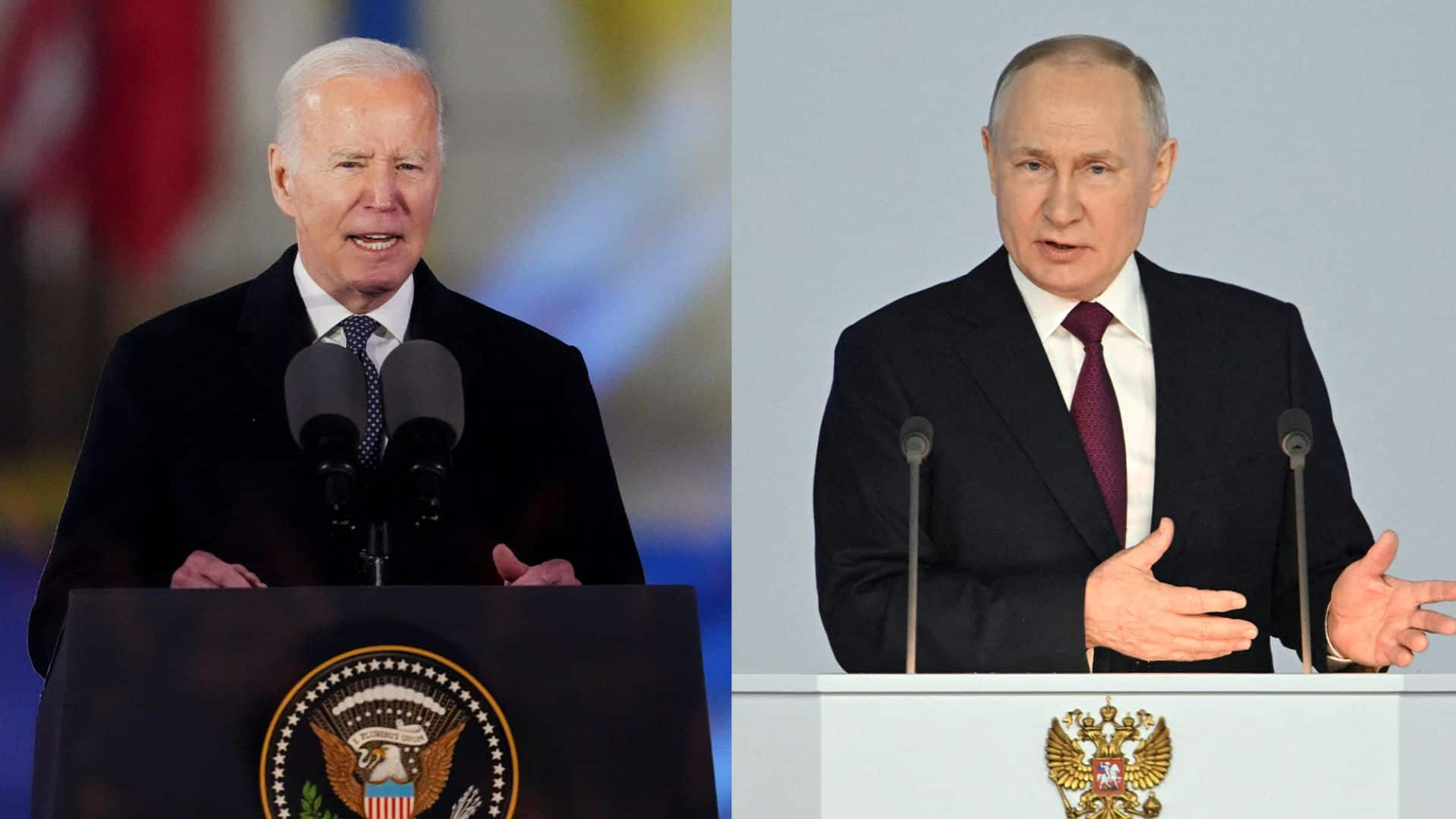Amid some calls for peace, foreign affairs minister says allied support for Ukraine remains firm | CBC News
Foreign Affairs Minister Mélanie Joly says Canada remains firm in its support for Ukraine, even as China inserts itself into the issue with calls for a ceasefire.
“We’re all in favour of talking about peace, but if China really wants peace, it needs to say to Russia to get out of Ukraine,” Joly said in an interview airing Sunday on Rosemary Barton Live.
Joly told CBC chief political correspondent Rosemary Barton that Canada remained committed to helping Ukraine ward off Russian aggression, one year after Putin first ordered his military to invade the country.
“Everything that is going on on the battlefield will have an impact afterwards at the negotiation table. And so the more we’re able to help Ukraine defend itself, the more we will be able to put Ukraine in a strong position when it comes to negotiate peace,” she said.
China waded into the conflict this week with an official call for peace talks and a ceasefire, a key move from a country which is thought to have significant influence in Moscow and with the resources to profoundly affect the course of the war.
The Chinese proposal also called for the end of Western sanctions on Russia, which Joly dismissed. Canada imposed more sanctions on Friday and announced it would send four more main battle tanks to Ukraine.
Ukrainian President Volodymyr Zelenskyy cautiously welcomed Chinese involvement and said Friday he plans to meet with Chinese leader Xi Jinping.
NATO’s backing remains strong, Biden says
China’s intervention comes after U.S. President Joe Biden made a trip to Kyiv earlier this week to reaffirm America’s support for Ukraine.
“One year into this war, Putin no longer doubts the strength of our coalition, but he still doubts our conviction,” Biden said in Warsaw following his journey to the Ukrainian capital.
“But there should be no doubt, our support for Ukraine will not waver, NATO will not be divided and we will not tire.”
Poland has been among Ukraine’s most important allies, not only sending military equipment to its neighbour but also hosting millions of Ukrainian refugees.
WATCH | Biden, Putin speak as Ukraine war enters second year:
Russian President Vladimir Putin accused the West of igniting war in Ukraine and threatened to pull out of a nuclear treaty, while U.S. President Joe Biden promised Russia would never experience victory in Ukraine.
In an interview airing on Rosemary Barton Live, Marcin Przydacz, a top adviser to Polish president Andrzej Duda, said Biden’s speech in Warsaw had been an important rallying call for the Western alliance backing Ukraine.
“There is a division between the free world, based on rules based on our values and the dedication to human rights,” he said. “On the other side we had dark autocrats, aggressive neo-colonial, neo-imperial Russia, which understands only one language, the language of ‘no.'”
Przydacz said Poland would continue to push for additional military aid to Ukraine, including in the form of artillery and air defence systems, but he acknowledged there were some difficulties in meeting Ukrainian requests for fighter jets, especially around training and maintenance.
“We would be ready to do it in a broader coalition if that would be the need both from Ukrainian side and the readiness on the Western side,” he said.

Domestic pressures
Biden’s trip and China’s intervention come as some domestic voices are increasingly vocal about the need for peace, or the end to military aid to Ukraine.
In Canada, Green Party co-leader Jonathan Pedneault told CBC Radio’s The House that his party supported limiting the type of weapons the country sends to support Ukraine.
“Do we have any assurances that war will stop at the border of Russia once territory is reclaimed?” he told host Catherine Cullen, arguing Canada should push for the start of peace talks.
CBC News: The House11:17The Green Party calls for peace
Politicians in Canada have generally been united in support of Canada’s efforts to send aid and military weapons to Ukraine, but the Green Party is now also pushing for peace talks with Russia. Green Party co-leader Jonathan Pedneault discusses whether his party’s stance is prudent or practical and why he believes it may be time to stop sending some weapons to Ukraine.
In the United States, some voices are even more critical of the broader NATO approach to the war.
Florida governor and prospective 2024 presidential candidate Ron DeSantis criticized what he called a “blank check policy.” U.S. Rep. Matt Gaetz also introduced a “Ukraine Fatigue Resolution” calling for the U.S. to end military and financial aid to Ukraine.
Devastating impact on Ukrainians, global food supply
One year of war in Ukraine has left millions of Ukrainians displaced from their homes, as Russia continues to target civilian infrastructure.
The UN estimates over eight million people have fled Ukraine, while millions more are internally displaced.
The war has also had a profound impact on the global food supply, as Ukraine’s exports helped feed 400 million people before the end of the war.
The World Food Program’s chief economist, Arif Husain, said devastation in Ukraine and the coming expiry of a deal to allow grain exports from Ukrainian Black Sea ports was a serious risk.
“[The Black Sea deal] must continue not only for Ukraine but for the world,” he told Barton.
Ahead of talks to potentially extend the deal, Hussein argued that the arrangement should be made permanent.
For all the latest World News Click Here
For the latest news and updates, follow us on Google News.


